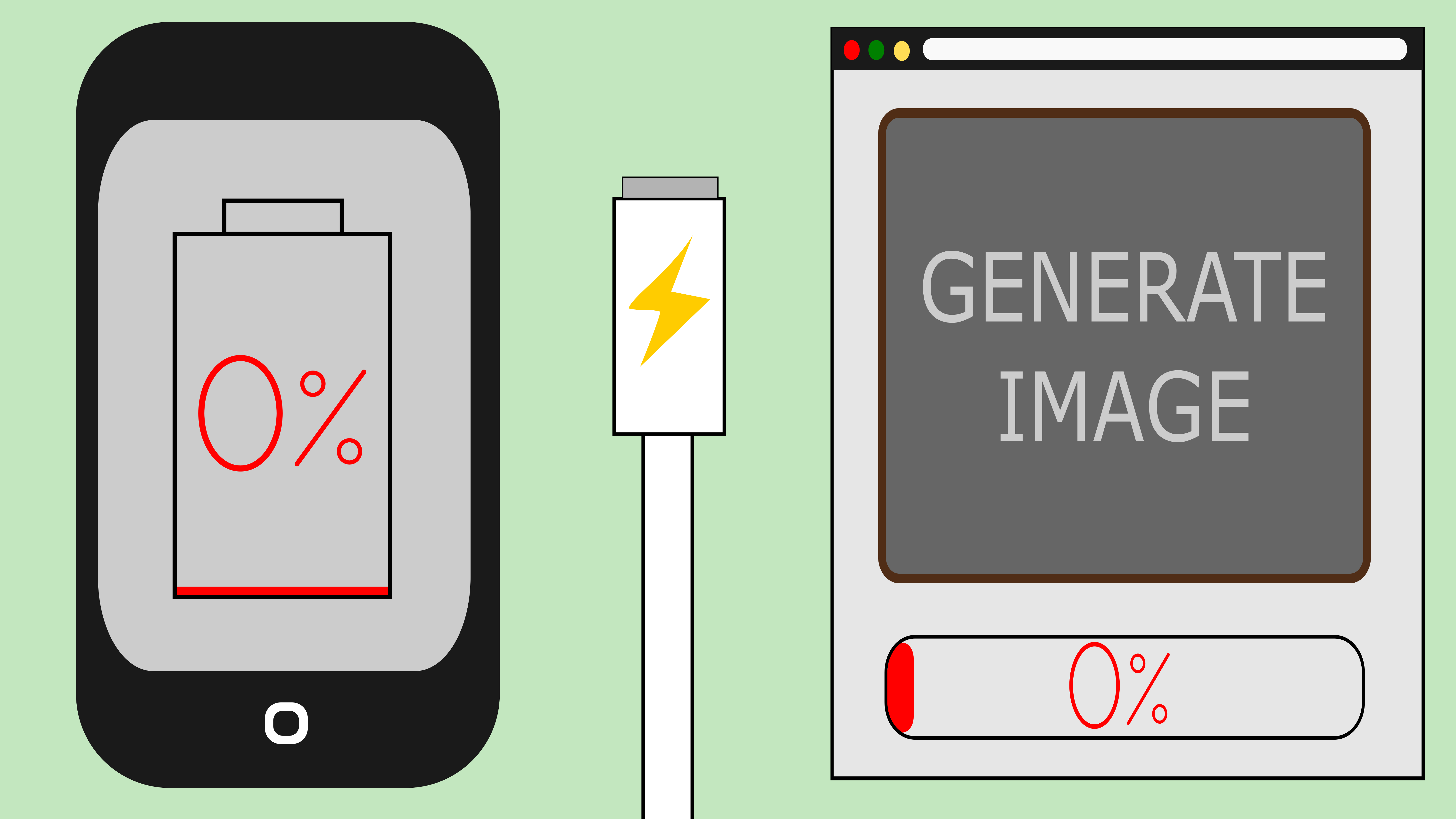Students have the responsibility to reduce their emissions, and that includes AI

Graphic by Neha Saxena.
There’s no denying that students are turning to AI for help with homework these days. While most of us understand that asking ChatGPT to write a reflection or complete an assignment is plagiarism, some students still use AI for routine tasks like brainstorming and copy editing.
As these tools only become stronger and smarter, however, they pose threats to academic integrity and the very essence of human creativity. Not only is AI terrifying in this sense, but it also creates a new threat to our climate that we are only now starting to understand.
The tech space is already a carbon-emissions monster, with the extraction of precious minerals, the waste caused by old gadgets deemed useless, and the energy required to store files in the cloud. AI scares me because it adds one more layer into a system that already holds so much power over our daily lives.
One study found that generating one AI image takes as much energy as fully charging an iPhone. Another found that the training required for one AI model like ChatGPT emitted as much carbon annually as “hundreds of households in America.”
The companies behind these tools are slow to release the figures on carbon emissions from the making of each model, but fast to claim how their new systems will supposedly help when it comes to climate change.
When questioned about the increase in carbon emissions caused by AI, Microsoft co-founder Bill Gates said that AI will “certainly” reduce emissions equivalent to the ones it causes.
Companies claim that AI has the potential to combat climate change through the design of eco-friendly materials, monitoring of energy consumption, prediction of oil leaks, and creation of agricultural insights.
While these examples are entirely possible, I struggle to imagine that AI will have a net positive impact, when we can be sure that it will be forcefully implemented in every aspect of human life. Maybe I could believe that AI will ultimately do good things for the environment if that’s the only sector it was used for — but in a capitalist system, that could never happen.
Google’s use of AI drove a 48 per cent increase in emissions since 2019, according to its recent environmental report. I can’t help but wonder if a large percentage of those emissions are wasted on the useless AI-generated responses at the top of every single internet search I make.
Apple, a company that tries to appear dedicated to reducing its emissions, is now incorporating AI into all aspects of its operating systems. How much carbon will we emit when asking Siri a question, or generating a “custom” emoji?
Now, don’t get me wrong, I know that you’re not automatically evil if you choose to use AI. I have been known to ask ChatGPT to write me the occasional poem, or come up with a recipe with the ingredients left in my fridge. But it’s hard to visualize the carbon impact of a transaction made on a screen.
When it comes to student life, AI is only going to get bigger. Just as some students sacrifice their carbon output to buy a quick coffee in a disposable cup on campus to keep them going, they will too turn to AI in moments of desperation.
Companies are implementing these tantalizing tools with consumer use and dependency in mind. They are the ones responsible here. They know what they’re doing, and they’re doing it anyway. The only thing we can do is understand our place in the system, and try to make more conscious and intentional decisions.







